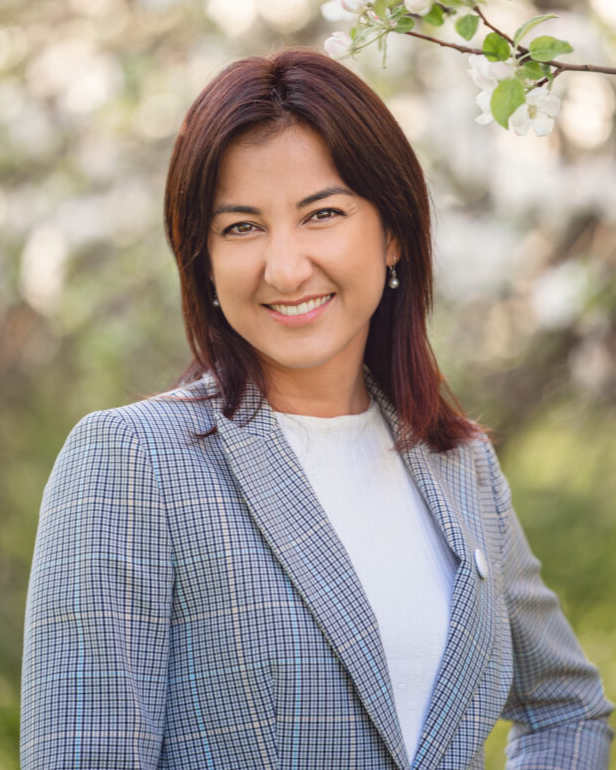View the full article on Yle in Finnish here.
View the video on Yle in Finnish & Russian here.
Article in English below.
Overcoming Challenges in Mobilizing Finnish Russian-Speaking Communities for Elections
Engaging the Russian-speaking population in Finland for elections has proven to be a challenging endeavor. In a recent Russian-language election program by Yle, participants shed light on the lack of interest, understanding of the significance, and insufficient attention given by political parties to the largest language minority in the country. This article explores the factors contributing to the low voter turnout among Russian-speaking Finns, including the lack of trust in elections and inadequate integration into Finnish society. The program also addressed issues of discrimination and labor-related immigration.
Participants in the Yle program highlighted the overall lack of trust among Russian-speaking individuals towards elections and their limited integration into Finnish society. Kamilla Sultanova, an expert in inclusive workplace environments, emphasized that individuals who migrate from non-democratic countries to Finland often feel that their voices do not hold any weight in the decision-making process. Professor Olga Davydova-Minguet, specializing in border and Russia-related matters, mentioned that many Russian-speaking individuals continue to live transnational lives, partly guided by the Russian agenda or the agenda of their home countries.
One contributing factor to the disengagement of Russian-speaking voters is the insufficient attention paid to them by Finnish political parties. The lack of interest shown by the parties further diminishes the motivation for Russian-speaking individuals to actively participate in the country’s political life.

Dmitry Gurbanov, Kamilla Sultanova, Sergei Kapanen, Olga Davydova-Minguet, and Levan Tvaltvadze discussed current topics related to parliamentary elections. Image: Petteri Bülow / Yle.
Debates arose regarding whether Russian-speaking individuals themselves should take the initiative to be more politically active or if Finnish citizens should play a role in encouraging their participation. While entrepreneur Sergei Kapanen stated that individuals who desire to be politically active will do so without external pressure, Dmitry Gurbanov, an active left-wing social media influencer, pointed out the need for support. Gurbanov highlighted the high barriers that even native-born Finns face when running for office, let alone immigrants.
Experts agreed that the ongoing conflict in Ukraine and the related Russian aggression have made life more challenging for Russian-speaking individuals residing in Finland. The number of discrimination cases based on ethnicity and Russian citizenship has also increased. The recent discussions in the media regarding dual citizenship were mentioned, with participants expressing doubt that the system would be abolished after the elections, despite certain parties calling for a reassessment. Preserving dual citizenship was seen as a means to attract foreign labor to Finland.
While Finnish political parties recognize the need for increased immigration to address labor shortages, the actions often fall short of the rhetoric. The experts in the program suggested that dismantling bureaucratic barriers could effectively improve the employment situation. Efforts to engage and empower the Russian-speaking population in Finland, along with inclusive policies and reforms, are vital for fostering a more participatory and diverse political landscape.
Kamilla participated in a discussion regarding political participation among the Russian-speaking audience. The topic was particularly intriguing, considering the Russian invasion and its implications for how Russian speakers are currently perceived in the Finnish context.
The panel included notable individuals such as entrepreneur Sergey Kapanen, blogger Dmitriy Gurbanov, professor Olga Davydova-Minguet, and our wonderful host, Levan Tvaltvadze. Levan highlighted an interesting statistic during the discussion, stating that during the last elections in 2019, the Russian-speaking population ranked 11th among other language groups in terms of voter turnout, despite Russian being one of the top five languages spoken in Finland.
In addition to the low interest in local politics, we also delved into topics such as immigration, dual citizenship, and the recent instances of open discrimination against Russians. We discussed the case of a Russian-Finnish contestant on “The Voice of Finland” who was initially removed from the competition but later invited back, as well as the dismissal of a KELA employee due to her dual citizenship.
If you possess the right to vote, I strongly encourage you to exercise it. Furthermore, I urge you to remind those within your networks to do the same. Being aware of what is happening in our society is not only a responsibility but also a means to support freedom, democracy, and actively shape the future of our children.
Recruiting political candidates or appealing to specific voter groups necessitates a long-term strategic approach. This involves capacity building, enhancing visibility, and fostering commitment through mentoring programs and inclusive training for political parties.
Active political participation requires providing clear and comprehensive information about what, how, and when one can vote. Such efforts help individuals truly belong and engage in the development of their local communities. It also aids in understanding how democracy works and the importance of each individual’s voice.
As we anticipate an increase in work-based migration, where the need for immigration is expected to rise significantly, we cannot afford to solely focus on short-sighted attraction strategies. We must also prioritize the retention of all specialists, ensuring comprehensive support for their families. To combat low voter turnout, it is crucial to activate multiple stakeholders by incorporating immigrants into decision-making positions and emphasizing the importance of representation.
Finally, the matter of dual citizenship holds significant importance. It is a privilege to reside in a country that offers both benefits and drawbacks, such as the cold climate. Dual citizenship provides an advantage in helping to retain international individuals and their valuable contributions to the country.


